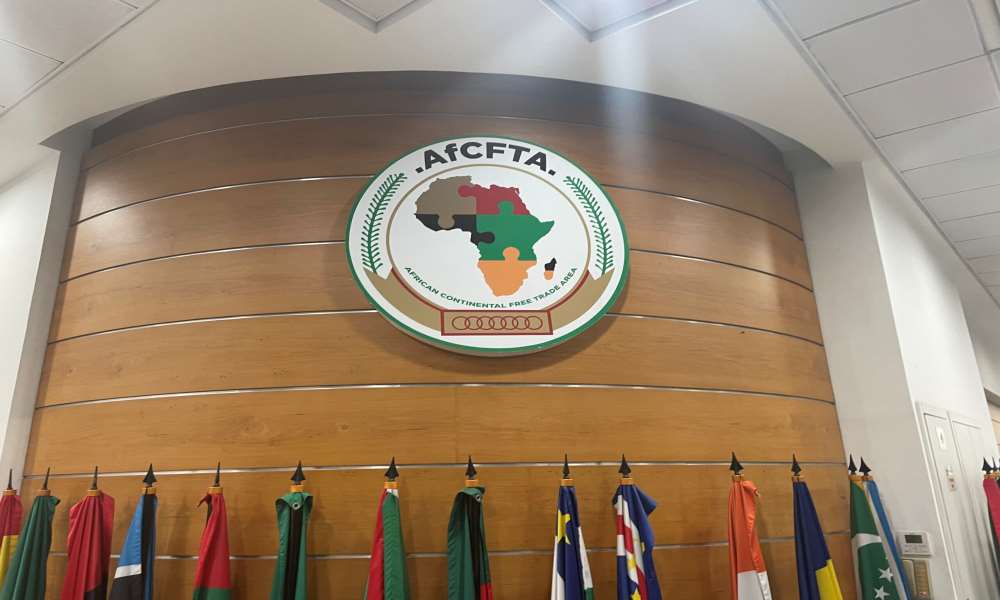AfCFTA to extend free-trade to 31 countries
BUSINESS REPORT
The African Continental Free Trade Area (AfCFTA) Secretariat has vowed to extend the recently promulgated free-trade regime to 31 countries this year after a successful pilot project in seven countries last year.
The AfCFTA is the world’s largest free trade area bringing together the 55 countries of the African Union and eight Regional Economic Communities to create a single continental market with a population of about 1.3 billion people and a combined Gross Domestic Product (GDP) of approximately $3.4 trillion, or N$64 trillion.
AfCFTA secretary general Wamkele Mene yesterday said that they had seen the start of trading in earnest, with goods moving across borders, even though it was not to the anticipated volumes as yet because the agreement was still in its early stages.
Speaking at the World Economic Forum (WEF) Annual Meetings, Mene said they had developed the routes and the legal construct that enabled a single market to be effective, through the private sector participation.
He mentioned the launch of the Pan-African Payments and Settlements System (PAPSS) last year, which aims to enable payments to overcome currency convertibility that constraints growth in Africa.
“So this year, our intention is to accelerate the implementation of the AfCFTA. Last year we had seven countries that took part in a pilot of trading under the rules of the AfCFTA. This year there will be 31 who will be participating in the guided trading initiative, applying the preferential rules of the AfCFTA for trade,” Mene said.
“The products that were traded ranged from processed agricultural products, to manufactured goods, to services also. The lessons that we learnt were that, actually, the private sector across the continent is ready to take advantage of the AfCFTA, governments have to move much faster.”
Last year, AfCFTA Secretariat has selected Cameroon, Egypt, Ghana, Kenya, Mauritius, Rwanda and Tanzania to participate in the Initiative on Guided Trade trial, which enabled the selected countries to access certain markets at preferential rates for certain products.
For example, Kenya was able to trade milk, cheeses, textiles and horticulture products in west and central Africa, and Rwanda was able to trade telephones, textiles, insecticides, pesticides, processed food and horticulture products.
“This year, the intensified efforts will be on the services sector: tourism sector, banking sector, within the framework of this pilot guided trading initiative that we are implementing,” Mene said.
The African Continental Free Trade Area (AfCFTA) Secretariat has vowed to extend the recently promulgated free-trade regime to 31 countries this year after a successful pilot project in seven countries last year.
The AfCFTA is the world’s largest free trade area bringing together the 55 countries of the African Union and eight Regional Economic Communities to create a single continental market with a population of about 1.3 billion people and a combined Gross Domestic Product (GDP) of approximately $3.4 trillion, or N$64 trillion.
AfCFTA secretary general Wamkele Mene yesterday said that they had seen the start of trading in earnest, with goods moving across borders, even though it was not to the anticipated volumes as yet because the agreement was still in its early stages.
Speaking at the World Economic Forum (WEF) Annual Meetings, Mene said they had developed the routes and the legal construct that enabled a single market to be effective, through the private sector participation.
He mentioned the launch of the Pan-African Payments and Settlements System (PAPSS) last year, which aims to enable payments to overcome currency convertibility that constraints growth in Africa.
“So this year, our intention is to accelerate the implementation of the AfCFTA. Last year we had seven countries that took part in a pilot of trading under the rules of the AfCFTA. This year there will be 31 who will be participating in the guided trading initiative, applying the preferential rules of the AfCFTA for trade,” Mene said.
“The products that were traded ranged from processed agricultural products, to manufactured goods, to services also. The lessons that we learnt were that, actually, the private sector across the continent is ready to take advantage of the AfCFTA, governments have to move much faster.”
Last year, AfCFTA Secretariat has selected Cameroon, Egypt, Ghana, Kenya, Mauritius, Rwanda and Tanzania to participate in the Initiative on Guided Trade trial, which enabled the selected countries to access certain markets at preferential rates for certain products.
For example, Kenya was able to trade milk, cheeses, textiles and horticulture products in west and central Africa, and Rwanda was able to trade telephones, textiles, insecticides, pesticides, processed food and horticulture products.
“This year, the intensified efforts will be on the services sector: tourism sector, banking sector, within the framework of this pilot guided trading initiative that we are implementing,” Mene said.





Kommentar
Allgemeine Zeitung
Zu diesem Artikel wurden keine Kommentare hinterlassen